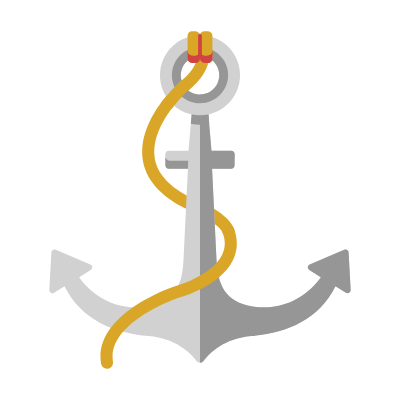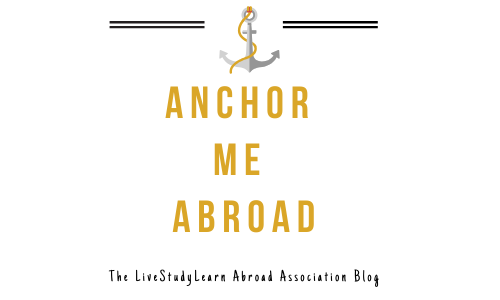
3 MAJOR Ways Studying Abroad Benefits High School Students
For high school and secondary school students around the world, opportunities to advance your future career and develop new skills can feel like ‘one more thing to do’. In between your actual studies, potential sports, clubs, and other activities, where is there time to research and find internships or study abroad experiences?
While a large portion of the information that you find online when searching for ‘study abroad’ is tailored to college and university-level students, there IS DEFINITELY a lane for 15-18-year-olds worldwide to spend time abroad throughout their studies.
But why should you do it? Why would studying abroad in high school even be worth it, especially as a teenager?
Here are THREE MAJOR Benefits of Studying Abroad in High School:
1. Exposure to new cultures at a young age
For a large portion of students under 18, travel has likely only consisted of the context of family trips and vacations with friends. While you may have had the chance to explore parts of the world in short bursts, there is less of a likelihood that you have been able to absorb a culture during a significant time. High School Study Abroad provides students the opportunity to dive deeper and broaden their thinking about different parts of the world during their most formidable years.
As a study abroad advisor, I enjoy working with 15-18-year-olds as they plan their study abroad journey simply because they have minimal expectations, but so much optimism. There is something wonderful to be said for younger people who have not been jaded by the negativity of the world, at least not to the extent of what happens as you enter college. Among the benefits of studying abroad when you’re in high school, you are likely to find that it helps you further develop your critical thinking skills.
This is especially important when you consider stereotypes and generalizations of different cultures. It is a part of nature, but it is easier when you are younger to shift those thoughts and create a more well-balanced scope of the world, probably the easiest it will ever be in your life moving forward. For this reason alone, I recommend finding a way to study abroad in high school.
2. The Challenge of Learning in a Different Academic Culture
Adaptability to a different academic system can be a hard learning curve for most study abroad students. While it can be more intense at the college level, high school study abroad academics also have some of these challenges.
It is important to consider that Academics is truly a culture and not just “school” meaning when you are sitting in a classroom. One of the biggest shifts in an academic culture that many students face, myself included at one point, is building familiarity with what it means to ‘be a good student’ in a different country. Since grading scales vary based on systems worldwide, what is a “failing grade” in one nation, might be considered “Almost Rockstar” in another.
Another important piece of academics when studying abroad is understanding the relationship between your teachers and the students.
In some cultures like the US, many students have more business casual relationships with their teachers, particularly if they are closer in age (or within the same generation). While there is an expectation of decorum and respect required, there are some teachers that allow students to call them by their first name, including a former salutation though, (ex: Mr. Nick or Mrs. Tanya as opposed to just Mr. Dawson or Mrs. Shannon) and depending on how active you are on campus you may create professional working bonds with teachers outside of class time through clubs, campus activities, or sports.
In other cultures around the world, however, the teacher-student interactions are much more strict and there is less interaction. This exposure to different social norms in the context of a study abroad program is great because it helps you to learn more about cultural expectations and will help you navigate your time away in your host country.
Lastly, during your high school study abroad journey, you will learn and adhere to new expectations including timekeeping, organization, and also how to submit and receive feedback on assignments, all of which, are probably much different than in your home country, but that can help you build grit that can take your further down the road in the future.
3. Competitive Edge for Future College and Work Applications
This is a BIG one. Similar to college and university-level study abroad, I always like to remind prospective high school semester abroad students that, while it has been around for decades, most students still do not study abroad. While there are many reasons for that (lack of knowledge of how to begin, money concerns, etc), the truth is that most of your peers will never study abroad. But YOU SHOULD.
For each generation, competitive hurdles grow, evolve, and present themselves in new ways, particularly as you begin the pivot towards your career. For anyone born after 2004, not only are you now competing with those in your peer group, but you’re also competing against automation and technology.
In the context of college and future job prospects, studying abroad adds a new layer to the discussion and can often set you apart from others in the “pile”. For starters, it is going to pique the interest of an admissions panel. It is not that studying abroad in high school is not rare per se, but that is so unexpected that it makes people want to know more about your program, how you found it, why you chose it, and how it has helped you develop yourself into a better person.
Next, if you have studied abroad without incident (which is all of us here – right?), you are “verified” to a certain extent. No, not verified with a blue check, but verified in the sense of a serious academic contender.
As I have discussed in previous posts, study abroad classes, despite the rumors, are often harder than classes on-campus during a regular semester at home. Outstanding academic performance abroad sets the stage for showing that you can compete, not just with your direct peers, but globally based on a variety of standards.
I always advise students to take this benefit and run with it. Whether you have your career path planned out or you’re still ‘unsure’ about what you’re looking for, studying abroad can help give you a boost, potentially open more doors down the road, and give you additional tools you may need to use one day to navigate your future academic or professional career that other students around you may never be privy to.
Are you a high school or secondary student that is considering studying abroad? Where are you interested in going? When would you like to begin? LEAVE A COMMENT!
Until next time,
– K

Known as The Study Abroad Specialist, Kimber Grayson is a serial-study abroader turned International Education coach and expert. Since 2014, she has helped 100+ students navigate their semester away journey from the coastal areas of Spain to China and every place in between. In 2018, she launched The LiveStudyLearn™ Abroad Association, a one-of-a-kind online membership platform for study abroad students worldwide.
She holds two Master's degrees from two well-respected London-based universities and has experience working in the US, UK & and Italy.
In her spare time (what's that again?), she enjoys leisure travel city breaks, any snow-based activity, skeet shooting, and attempting to learn new languages.
-
kimberhttps://www.anchormeabroad.com/author/kimber/
-
kimberhttps://www.anchormeabroad.com/author/kimber/
-
kimberhttps://www.anchormeabroad.com/author/kimber/
-
kimberhttps://www.anchormeabroad.com/author/kimber/
kimber
Known as The Study Abroad Specialist, Kimber Grayson is a serial-study abroader turned International Education coach and expert. Since 2014, she has helped 100+ students navigate their semester away journey from the coastal areas of Spain to China and every place in between. In 2018, she launched The LiveStudyLearn™ Abroad Association, a one-of-a-kind online membership platform for study abroad students worldwide. She holds two Master's degrees from two well-respected London-based universities and has experience working in the US, UK & and Italy. In her spare time (what's that again?), she enjoys leisure travel city breaks, any snow-based activity, skeet shooting, and attempting to learn new languages.


You May Also Like

How to Hack the Downsides of Summer Study Abroad
June 10, 2022
Maymester Study Abroad Programs: Here’s What You Need to Know
February 16, 2022






